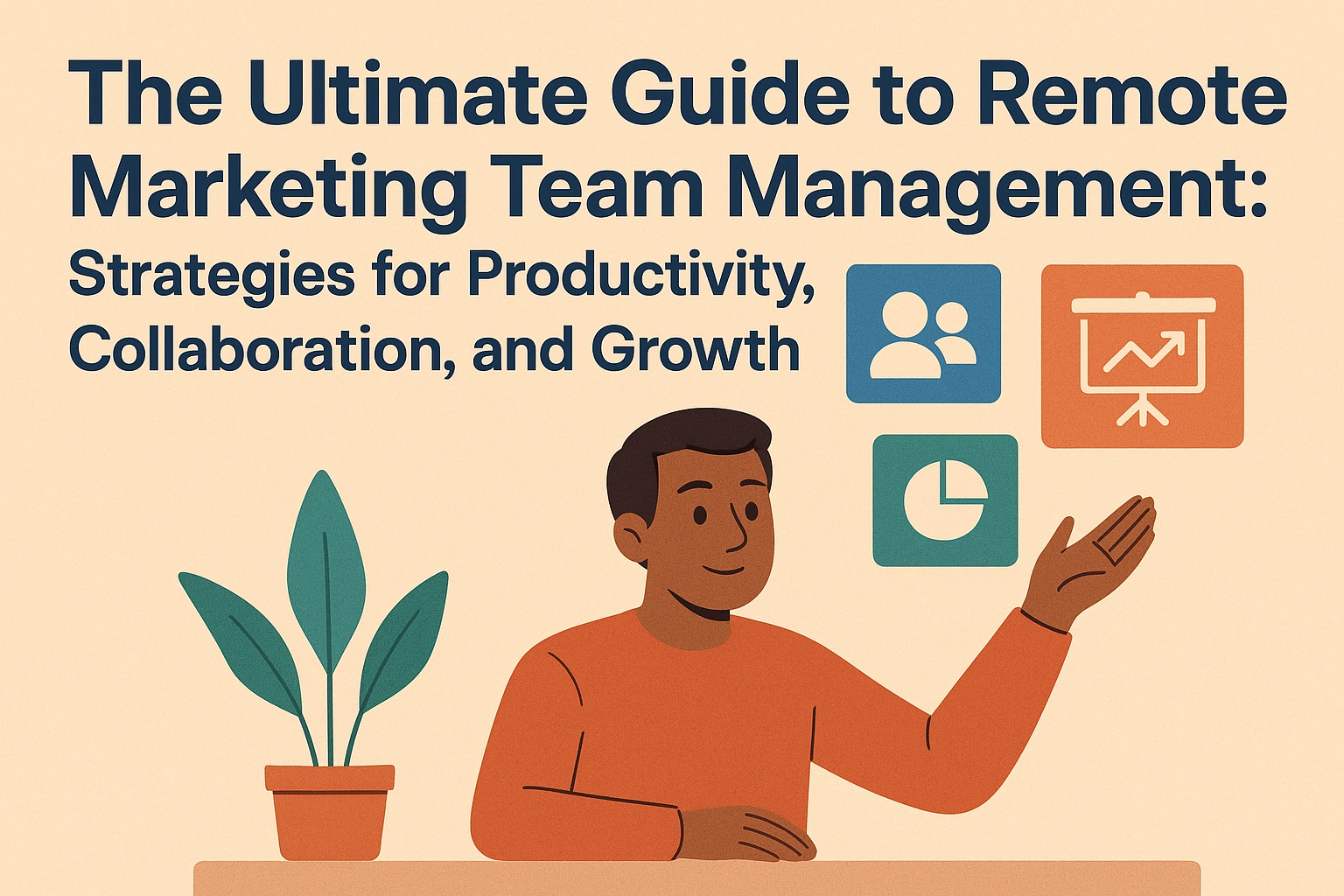The Ultimate Guide to Remote Marketing Team Management

The Remote Marketing Team Advantage
Benefits of Distributed Marketing Teams
Challenges Unique to Remote Marketing Management
Remote vs. Hybrid: Marketing Team Structures
Building Your Remote Marketing Dream Team
Defining Roles and Competencies for Remote Success
Recruiting Strategies for Remote Marketing Talent
Remote-Focused Interview and Assessment Techniques
Onboarding Remote Marketing Team Members
Creating an Effective Remote Marketing Team Culture
Establishing Core Values and Team Vision
Building Trust in Virtual Environments
Fostering Belonging and Inclusion Across Distances
Communication Strategies for Remote Marketing Teams
Synchronous vs. Asynchronous Communication Balance
Documentation and Knowledge Management
Effective Virtual Meetings for Marketing Teams
Tools and Technology for Remote Marketing Management
Project Management Solutions for Marketing Workflows
Collaboration Platforms for Creative Development
Performance Tracking and Analytics Dashboards
Setting Goals and Measuring Performance Remotely
OKRs and KPIs for Remote Marketing Teams
Performance Evaluation in Remote Settings
Recognition and Reward Strategies for Distributed Teams
Developing Marketing Talent in Remote Environments
Remote Learning and Skill Development
Mentorship and Coaching Across Distances
Career Progression for Remote Marketing Professionals
Handling Remote Marketing Team Challenges
Preventing Burnout and Supporting Well-being
Managing Conflict in Virtual Environments
Maintaining Creativity and Innovation at a Distance
Conclusion: The Future of Remote Marketing Leadership
References
The Remote Marketing Team Advantage
Benefits of Distributed Marketing Teams
Challenges Unique to Remote Marketing Management
Remote vs. Hybrid: Marketing Team Structures
Building Your Remote Marketing Dream Team
Defining Roles and Competencies for Remote Success
Recruiting Strategies for Remote Marketing Talent
Remote-Focused Interview and Assessment Techniques
Onboarding Remote Marketing Team Members
Creating an Effective Remote Marketing Team Culture
Establishing Core Values and Team Vision
Building Trust in Virtual Environments
Fostering Belonging and Inclusion Across Distances
Communication Strategies for Remote Marketing Teams
Synchronous vs. Asynchronous Communication Balance
Documentation and Knowledge Management
Effective Virtual Meetings for Marketing Teams
Tools and Technology for Remote Marketing Management
Project Management Solutions for Marketing Workflows
Collaboration Platforms for Creative Development
Performance Tracking and Analytics Dashboards
Setting Goals and Measuring Performance Remotely
OKRs and KPIs for Remote Marketing Teams
Performance Evaluation in Remote Settings
Recognition and Reward Strategies for Distributed Teams
Developing Marketing Talent in Remote Environments
Remote Learning and Skill Development
Mentorship and Coaching Across Distances
Career Progression for Remote Marketing Professionals
Handling Remote Marketing Team Challenges
Preventing Burnout and Supporting Well-being
Managing Conflict in Virtual Environments
Maintaining Creativity and Innovation at a Distance
Conclusion: The Future of Remote Marketing Leadership
References
Posted Jun 6, 2025
Guide for building and managing remote marketing teams successfully.
0
11



